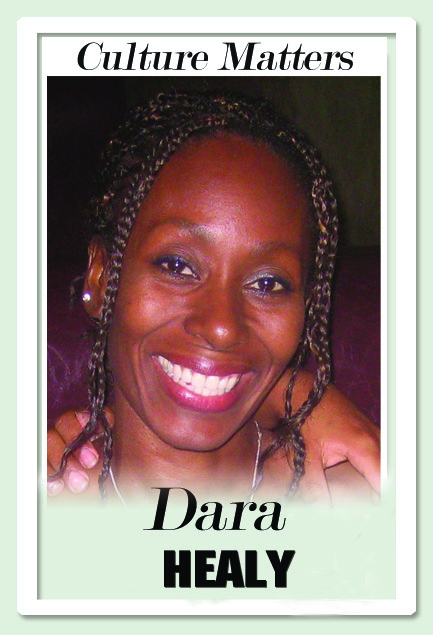A legacy of resistance

Culture Matters
THE BLOOD pulsed hypnotically from the gash in his head. Instinctively, I wiped the splashes off my face. It happened so fast. Two men started fighting over the last loaf of bread just as I got to the parlour. The wounded man fell over and someone screamed from the crowd that had swiftly gathered. There was so much blood. Out of breath, my mother grabbed my arm. “You, Ms Virginia, veni,” and pulled me away from the gruesome scene.
Flare-ups like this were getting more frequent. It was 1935 and life was unbearable. The war left us struggling for food and jobs, but at least returning soldiers agitated and labour was starting to organise. Then the global economy crashed and we fell with it.
My mother silently and roughly cleaned the blood off my face. She grew food to sell in the market and also worked for rich people. Sometimes, my father got work in the oil refinery. Mammy put the bloody clothes to soak and started to fuss around the dismal shack we called home.
Cora my older sister was sewing something as usual. Sherman my big brother was outside writing songs, humming his favourite Growling Tiger calypso. “But when a hungry man goes out to beg/ They will set a bulldog behind his leg/ Forty policeman may chuck him down too/ You see where a dog is better than you.” Apparently, Sherman was going to be a famous calypsonian. We will see what mammy have to say about that.
Night fell. “I coming with yuh.” My mother looked at me unsmilingly. I understood the look. I had been going to meetings with her a few months now, but it was getting more dangerous.
The old shed was packed. Ms Elma Francois, head of the Negro Welfare Cultural and Social Association, was in front. She was waving a copy of the banned Marcus Garvey newspaper Negro World, speaking fiery words about workers’ rights and the need for more women to fight for equality.
Next, an East Indian warrior woman everyone called Naidu got up. She talked about the resistance within her community to poor working conditions and the cruelty of overseers. A rumour went around that Uriah “Buzz” Butler would come, but he never showed. We knew why.
Next day, I went to visit Sati. Her little brother was sick again; probably ringworm. Auntie Parvati, her mother, was pounding the pestle in the mortar, while her little sister Indrani worked the sifter.
Sati asked if she could go with me for a walk. Auntie gave her a cut-eye, but did not say no. Sati was mad because auntie was saying that the sickness in the barracks spreading, and she needed to help see about her brother and sister. We could not talk for long because Sati did not want to upset her mother even more.
It was different for me. My mother hated the British. She blamed them for killing Uncle Cornelius, her sister’s husband. He made it home from the war, but did not survive his injuries. Auntie Amelia never had another sweetheart – my mother said the British took the light out of her sister’s eyes and the life from her heart. Mammy cleaned the homes of the wealthy fuelled by a rage that longed for a better life.
Eventually, Butler broke away from the labour organisation led by Captain Cipriani. Although some progress for workers had been made, Butler, Elma and other radical thinkers could not understand how labour leaders allowed the Wages and Advisory Board to set a minimum wage for urban and rural workers below the standard. So, over the next months they led strikes and marches to demand better conditions. Sati’s mother banned her, but she ran away to meetings whenever possible.
In June 1937, everything changed. From early, workers gathered. Labourers, domestics, and workers in sugar, cocoa, oil. In the front, Butler, Elma and other leaders. I could no longer see my mother through the mass of people. Sati and I hugged each other as we walked, hearts pounding. Fyzabad.
Amongst the people, a ripple turned into a wave. Whispers flew about a state of emergency. The police were trying to arrest Butler. Some started to shoot into the crowd. Sati and I looked at each other then charged, screaming with the rest of the workers. Dead or alive, this would be our legacy; that we stood up against racism, poverty and colonialism. Dead or alive, our story must be told. It is time.
Dara E Healy is a performance artist, communications specialist and founder of the NGO, the Indigenous Creative Arts Network – ICAN


Comments
"A legacy of resistance"